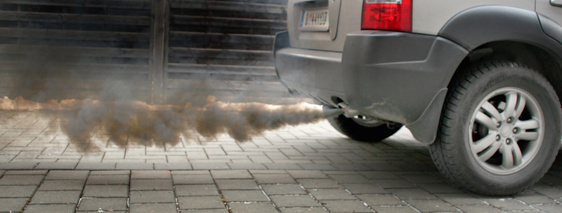
Diesel exhaust emits gases and particles that can cause cancer, heart disease, asthma and immune system problems. As public awareness of these dangers grows, so do diesel-emission restrictions. That double whammy means more and more owners of diesel-powered cars, trucks and buses are looking for ways to reduce harmful engine emissions. Those options include switching to fuel diluted with non-petroleum fats and oils, installing an exhaust system that traps particulate matter or switching to more environmentally friendly diesel technology.
Biodiesel is refined from vegetable oils, animal fats or recycled restaurant grease. The fuel produces fewer air pollutants, with the exception of nitrogen oxide. Biodiesel can be burned in its pure form but mostly is mixed with petroleum-based diesel. Commonly used blends are 2 percent, 5 percent and 20 percent biodiesel. Many vehicle manufacturers warn that using a blend of more than 5 percent biodiesel can damage the engine. Check with the owner's manual, your dealer or the manufacturer.
Even modern diesel engines generate a lot of diesel particulate matter -- carbon, hydrocarbons and metallic matter. Diesel particulate filters are commercially available for vehicles not equipped with this technology. There are two main categories of filters. A "wall-flow" filter will remove about 95 percent of particulate matter. The efficiency of "partial" filters varies up to about 50 percent.
Bluetec is a shared diesel technology developed by Mercedes-Benz. In 2006 a diesel initiative of major car companies agreed to contribute technology to Bluetec to establish it as a global brand for clean, fuel-efficient transportation. Mercedes claims that Bluetec is the most environmentally friendly diesel-drive system available. In addition to optimized engine combustion, several catalytic converters reduce carbon monoxide, hydrocarbons, soot particles and nitrogen oxides. Dodge, Jeep, Audi and Volkswagen are among brands that build or have built diesels using Bluetec technology.